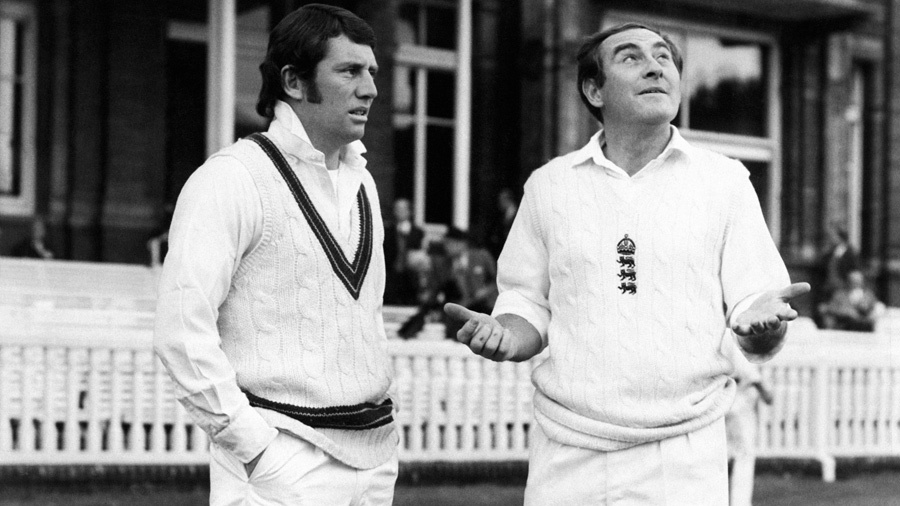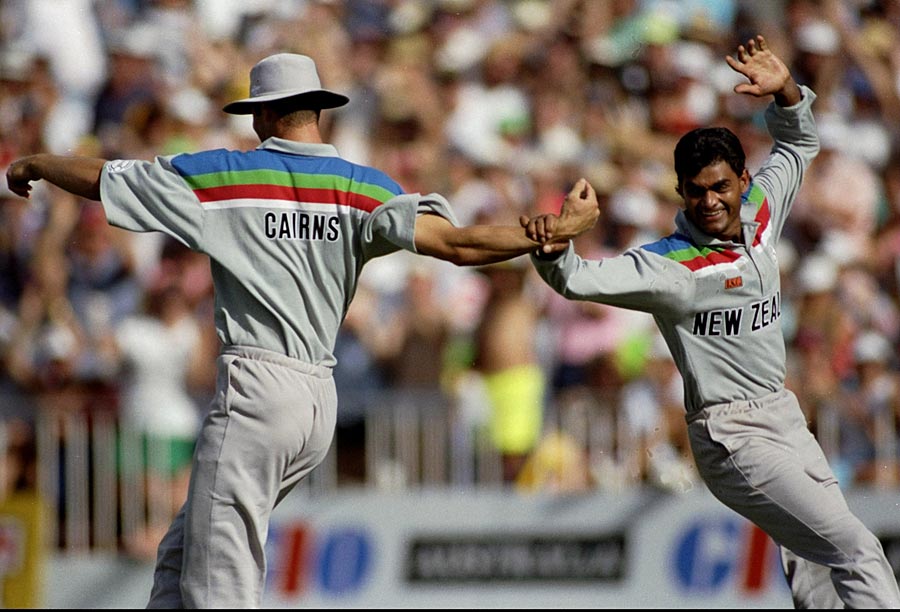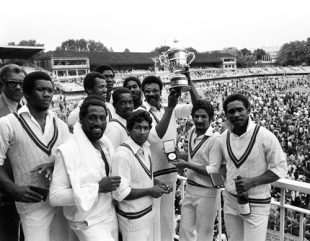Here is some elite honesty, a very elite example of it. Australia 238 for 5 against Pakistan in Hobart, needing another 131 for the win. Justin Langer, on 76, edges behind to Moin Khan but is not given by the umpire Peter Parker. Doesn't walk. Fine. That's the difference between elite honesty and regular honesty, understanding that it's the umpire's job to make a batsman walk.
---Also read
On Walking - Advice for a Fifteen Year Old
---
Langer's dad asks him about the edge. Nah, no edge, just a clicky bat handle. He tells his partner on the field and good mate Adam Gilchrist the same thing. Even his captain, elite honesty manifest as human, his mentor and idol, he tells him it was the clicky bat handle that dunnit.
These are elite mates and elite family, who deserve a bit of elite honesty and that's what Langer gives them. For the next decade and a half, this elite honesty is maintained. Then one day he downgrades it to mere honesty and reveals that he had smashed the hell out of the ball. He couldn't help it. He'd copped a bad one in the first innings. He was under the pump for his place. But while it lasted, the honesty was really elite.
If that was the only time you were elitely honest, then how elitely honest could you really be? Not very. So here's another quality bit of elite honesty. Notice how upright Langer is as he walks up to the stumps while fielding. The ball is dead and Hashan Tillakaratne in his crease. Langer deliberately tips a bail off the stumps and then watches his elite team-mates appeal for hit-wicket.
That we can identify this as elite honesty is only thanks to the ICC and their match referee Chris Broad. "Justin was disappointed that the charge was brought and explained his position in a very honest and succinct way," said Broad, following a hearing. You might call Broad's decision elite stupidity but I certainly won't. It's elite judgement.
Some say there is also elite honesty in how Langer ran Western Australia and Perth Scorchers, but I think the most elite example of elite honesty comes from Langer's idol, the true father of the modern Australian way. In a recent interview with Steve Waugh, our very own Melinda Farrell broached this idea of elite honesty (though we called it culture then). She asked Waugh about a couple of catches from his career that he dropped but claimed.
How do you look back at them now?
"Well, I don't really," Waugh responded, which is absolutely rule No. 1 in maintaining elite honesty. About the catch ("catch" used here in a way that also indicates drops) to dismiss Brian Lara, he continued: "It's just part of the game. I mean, at the time I still remember the catch. I still believe I caught it. It was inconclusive but in my mind it bounced off my wrist, but you know, that's all life. You don't want to look back at stuff. I try to look forward. You know, people have their own opinions on what happened there but I'm not going to change my opinion. My opinion was I caught it on the day."
You see why this is more elite? You understand? It's because from his response we end up learning something. We learn that catches are opinions, not facts. If your opinion is that the catch was good, then what business does the fact that it was a drop have anything to do with it? If you're asking yourself how you've managed life so far not abiding by these rules, console yourself that you're not alone. As the great man says, that's all life.
***
Us mortals alas, we aspire to mere honesty. Non-elite stuff. Proletariat. So here, humbly and hopefully, is some of it.
This business of elite honesty - and Langer's elite mateship and elite humility - this is all elite BS. So is the Players' Pact. And the "hard but fair" act. It's classic corporate-speak - high-sounding words put together to sound and look pretty but that end up meaning nothing.
We're not talking about airplane seats where even economy can now be premium. Honesty is honesty. You either are or you aren't. There is no elite level to which you and I are not welcome and only Australian cricketers are. The truth is, and if it is not, then it is a lie; no number of demagogue leaders, politicians or cricket captains are going to change this fact (not opinion). In today's world, more and more people might not be accepting the truth, but that says something about a changing people and society, not the truth.
All that these words do is maintain the pretence that Australian cricketers operate - or should operate - on a higher moral plane than non-Australian cricketers; that the Australian line is the line, never mind that nobody's ever been told where that line is. It is what has got them into this mess in the first place.
It is what the extreme punishments to Steven Smith, David Warner and Cameron Bancroft were so much about. The rest of the cricket world was made to look like a collective of tree-hugging liberal halfwits for having - fairly maturely, actually - come to terms with what is an on-field code violation and not a sign of moral decay. Sides tampered with the ball, sometimes they got caught and were punished and yes, sometimes they got away with it. That's all life.
Cricket, though, reactionary and conservative cricket, fell for it, responding by increasing the seriousness and stigma of tampering as an offence. Instead of doubling down, cooling the atmosphere, and insisting that tampering wasn't an existential threat to the game, it went the other way, aspiring to this elite Australian way.
It was a depressing reminder of the way cricket is still unable to drag itself out of the streak of puritanism that has marked its operations for so long, where it believes it is not just a morally superior game but that it produces morally superior humans. That's the subtext of the Spirit of Cricket, which, lately Australia seem to have clung to tighter than others. But here's a truth bomb for all of us: cricket isn't morally superior to anything. If it ever was, maybe it was nearly two centuries ago. It's a great sport, no doubt, but that is all it is - a sport. If it expanded globally in reality, rather than just in an ICC mission paper, it may well loosen up and understand this.
What Langer's words and the set of associated ideas among which they float - about the exceptionalism of Australian cricketers - do is set Australia up, at some point down the line, for another fall and greater unpopularity. Look at the sniggering already - magnificently played, by the way, Graeme Smith. Imagine now the next time one of them stuffs up, delivers a nasty sledge, or bullies an umpire, or tampers, or surreptitiously tips over a bail, or claims a dropped catch, or doesn't walk when he's out.
Of course it'll happen. They may be Australian cricketers but - and here's the big reveal - they are also human. They are humans like the rest of the cricketers they play with and against, ones who also do all of these things occasionally, ones they used to always beat and now ones they don't beat so often. They are humans like the rest of us who watch them, envy them, criticise them and worship them; humans who are fallible; humans who are striving for some regular honesty, sometimes succeeding but other times failing.
To this eye, and perhaps many others, all Australian cricket should stand for is Australian cricket, because that has always been more than enough. The way their openers and one-downs come at you, the way they don't stop producing super-fast fast bowlers, the way their keepers yap and catch, the way their slips stand chewing gum like they're a street gang, the way they think leggies are the normal ones and offies the ones to be suspicious of, the way their grounds can feel simultaneously so big and so small, and the way no game is over for them until the very last of them has physically sat on the bus and left the stadium. It has never needed any buzzwords or catchphrases beyond that.





